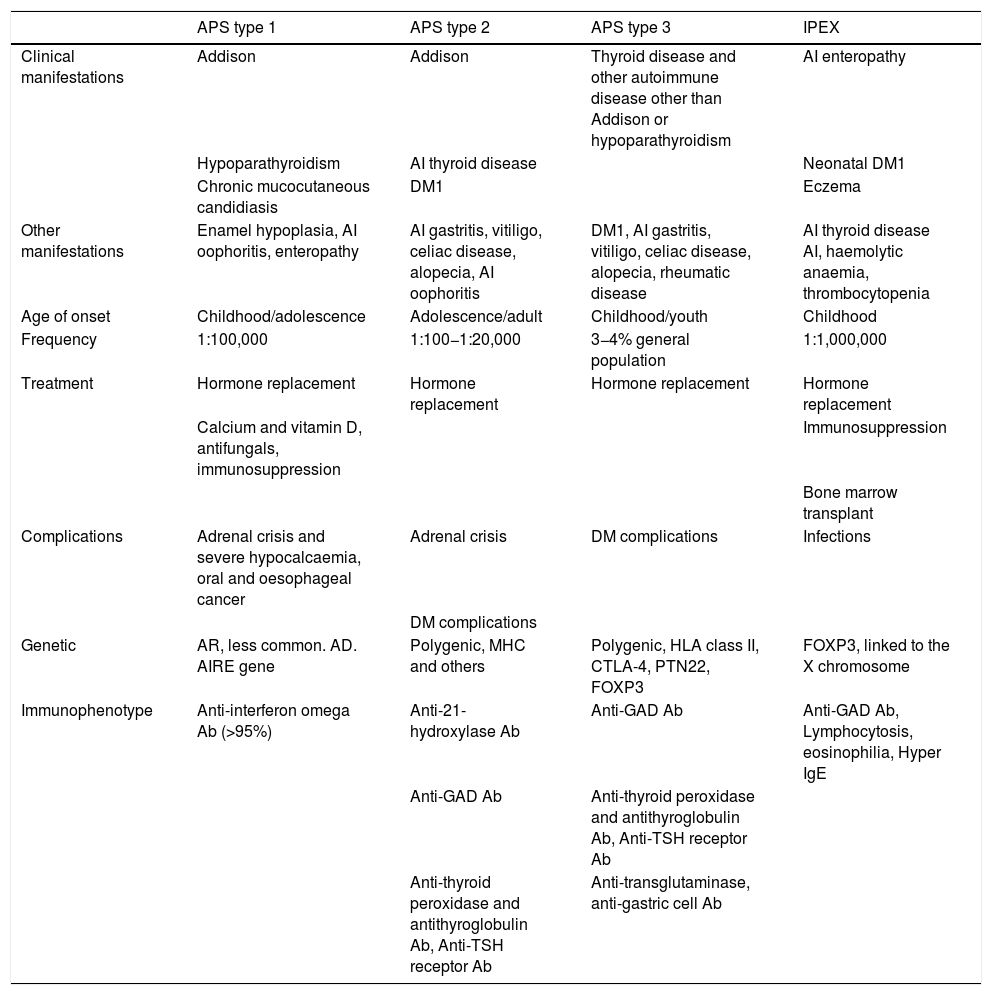Pluriglandular autoimmune syndrome (APS) can affect multiple endocrine glands and is associated with other autoimmune diseases. APS type 1 presents with hypoparathyroidism, mucocutaneous candidiasis and Addison's disease. It is caused by AutoImmune Regulator (AIRE) gene mutation. The diagnosis includes clinical manifestations in addition to AIRE gene sequencing. SPA type 2 presents with Addison's disease, type 1 diabetes, or autoimmune thyroid disease. Multiple genes have been implicated, including those of the class II major histocompatibility complex. SPA type 3 is characterized by autoimmune thyroid disease and other autoimmune disease, excluding Addison's disease and hypoparathyroidism, 4 genes have been implicated and confer susceptibility. The diagnosis of APS type 2 and type 3 includes clinical manifestations, nevertheless, the determination of autoantibodies can be useful to predict the risk of disease manifestation and to confirm the autoimmune disease in some cases.
Los síndromes pluriglandulares autoinmunes (SPA) afectan a múltiples glándulas endocrinas y asocian otras enfermedades autoinmunes. El SPA tipo 1 se presenta con hipoparatiroidismo, candidiasis mucocutánea y enfermedad de Addison, se debe a una mutación en el gen AIRE (AutoImmune Regulator). El diagnóstico es clínico además de la secuenciación del gen AIRE. El SPA tipo 2 se presenta con enfermedad de Addison, diabetes mellitus tipo1 o enfermedad tiroidea autoinmune, se han implicado múltiples genes, entre ellos los del complejo mayor de histocompatibilidad tipo 2. El SPA tipo 3 se caracteriza por la presencia de enfermedad tiroidea autoinmune y otra enfermedad autoinmune, excluyendo la enfermedad de Addison y el hipoparatiroidismo, se han implicado 4 genes que pueden conferir susceptibilidad. El diagnóstico del SPA tipo 2 y tipo 3 es clínico, aunque la determinación de autoanticuerpos puede ser útil para la evaluación del riesgo de presentar la enfermedad y para confirmar la enfermedad autoinmune en algunos casos.







